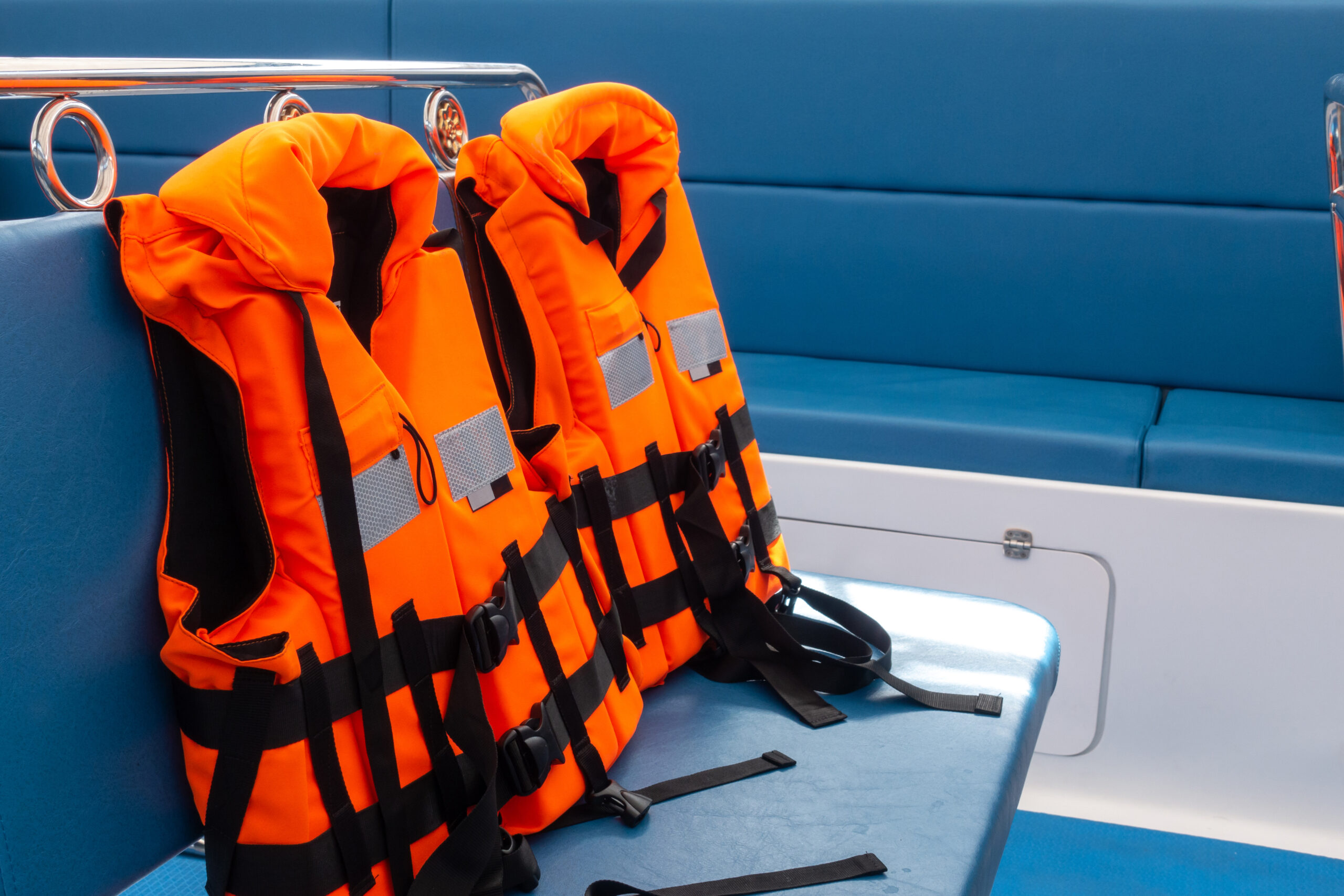As New Jersey continues another cold-weather boating season, it’s crucial for boaters to understand and comply with the state’s mandatory Personal Flotation Device (PFD) regulation. This law is designed to prevent tragic drownings and reduce the risks faced by first responders during winter search-and-rescue operations.
Understanding the Cold Weather Life Jacket Requirement
According to the New Jersey Marine Services Bureau Regulation 12:82-1.4(f):
Between November 1 and May 1, all persons aboard a recreational vessel under 26 feet (including rowboats, canoes, kayaks, and stand-up paddleboards) must wear a securely fastened, U.S. Coast Guard-approved life jacket while the vessel is underway.
The only exception applies to individuals inside the cabin of a cabin vessel.
Why Is This Law Important?
Cold water significantly increases the risk of hypothermia and drowning. Even strong swimmers can lose mobility within minutes of falling into near-freezing water.
• According to the 2023 U.S. Coast Guard Recreational Boating Statistics, 75% of fatal boating accident victims drowned, and a staggering 87% of those victims were not wearing a life jacket at the time.
• Wearing a properly fitted life jacket can mean the difference between life and death in an emergency.
Who Must Comply?
This regulation applies to:
✅ Operators and passengers on recreational boats under 26 feet
✅ Those using canoes, kayaks, rowboats, and paddleboards
✅ Anyone outside a cabin while the vessel is in motion
The Impact on Boater Safety
By enforcing this law, New Jersey aims to:
✔ Reduce preventable drownings in cold-water months
✔ Improve emergency response efficiency for first responders
✔ Enhance overall boating safety for all recreational water users
Final Thoughts
For anyone operating or riding in a small boat during the cold-weather months, following this law isn’t just a legal requirement — it’s a crucial safety measure. Properly wearing a U.S. Coast Guard-approved life jacket can help save lives and prevent tragic accidents.
Before heading out on the water, make sure you’re prepared, informed, and always prioritize safety. Boating should be enjoyable, but it should also be safe for everyone on board.
For more information on New Jersey’s boating safety laws, visit the New Jersey State Police Marine Services Bureau or the U.S. Coast Guard website.
Cooper Levenson is a full-service law firm established in 1957. Kathleen F. Beers, Esq. handles personal injury law and can be reached at kbeers@cooperlevenson.com or (609) 572-7570. Visit our blog at https://blog.cooperlevenson.com/ for more information.
